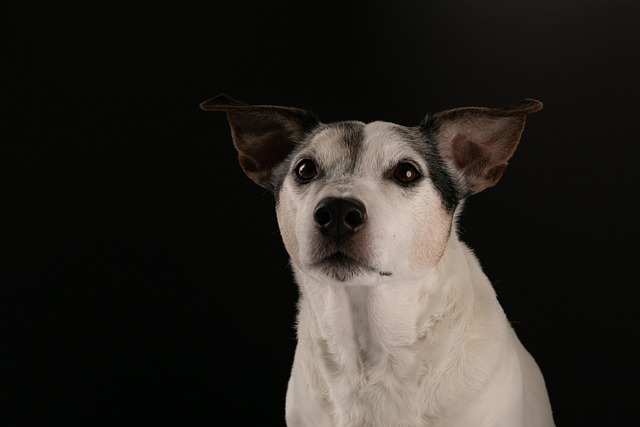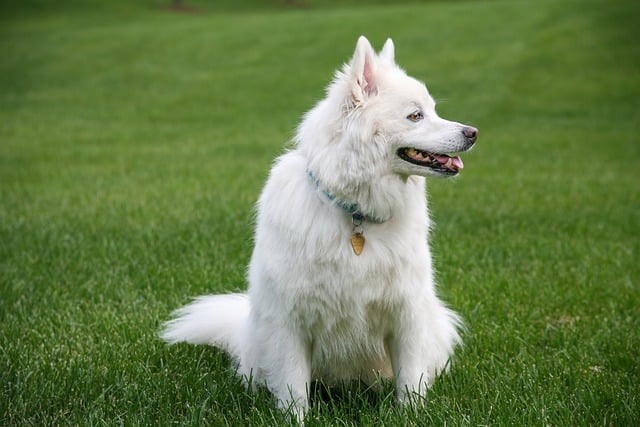Whenever you see your dog coughing frequently and breathing rapidly, your owner will always feel anxious, worrying that there are serious health problems behind these symptoms. Among the many factors that cause respiratory diseases in dogs, the relationship between allergies and chronic bronchitis has attracted much attention. From a professional medical perspective, there is a complex and close connection between allergies and chronic bronchitis. This is not only a scientific proposition related to the health of dogs, but also carries the owners' deep concern and worry for their fur children.
The dog's allergic reaction is essentially an overreaction of the immune system to some originally harmless substances, such as pollen, dust mites, certain foods, mold, etc. When the dog is exposed to these allergens, the immune system will identify them as "foreign invaders" and then activate the defense mechanism. In this process, the body will release chemicals such as histamine, which will cause swelling of the respiratory mucosa, increased secretions, and narrowing of the airway. Under normal circumstances, the dog's bronchi can smoothly transport air to ensure stable and smooth breathing. However, when allergic reactions continue to occur, the airway is in an inflamed state for a long time, just like a road that was originally unobstructed and repeatedly blocked by construction. Over time, it is easy to cause chronic bronchitis.
From the perspective of pathological mechanism, chronic bronchitis is a chronic nonspecific inflammation of the bronchi and surrounding tissues. Repeated respiratory inflammation caused by allergies can damage the epithelial cells of the bronchial mucosa and destroy the normal structure and function of the airway. The ciliated cells that were originally arranged neatly and have the function of clearing foreign bodies will be damaged or even fall off under the stimulation of inflammation, which reduces the ability of the airway to clear foreign bodies such as sputum and dust. At the same time, inflammation will also stimulate goblet cell hyperplasia, leading to excessive mucus secretion. These thick mucus cannot be discharged smoothly and accumulate in the bronchi, which not only hinders air circulation, but also provides a breeding ground for bacteria and viruses, further aggravating the inflammatory response and forming a vicious circle. It can be imagined that the dog's respiratory tract is difficult to "work" in such an environment, and every breath is accompanied by discomfort. As an owner, how can you not feel distressed?
 In terms of clinical symptoms, chronic bronchitis caused by allergies has a more typical manifestation. Dogs may have frequent and persistent coughs, which often intensify after exercise, when eating, or when getting up in the morning. The cough sound is sometimes dry, and sometimes accompanied by phlegm, as if something is stuck in the throat. In addition to coughing, dogs may also have shortness of breath and wheezing, and in severe cases, they may even have difficulty breathing, flaring nostrils, and abdominal heaving. The originally lively and active furry children become listless and have a loss of appetite due to poor breathing, and are no longer as enthusiastic about toys and games as before. Seeing the dog being tortured by the disease, the owner's anxiety and helplessness are indescribable, and they wish they could bear this pain for them.
In terms of clinical symptoms, chronic bronchitis caused by allergies has a more typical manifestation. Dogs may have frequent and persistent coughs, which often intensify after exercise, when eating, or when getting up in the morning. The cough sound is sometimes dry, and sometimes accompanied by phlegm, as if something is stuck in the throat. In addition to coughing, dogs may also have shortness of breath and wheezing, and in severe cases, they may even have difficulty breathing, flaring nostrils, and abdominal heaving. The originally lively and active furry children become listless and have a loss of appetite due to poor breathing, and are no longer as enthusiastic about toys and games as before. Seeing the dog being tortured by the disease, the owner's anxiety and helplessness are indescribable, and they wish they could bear this pain for them.
Diagnosing whether a dog has chronic bronchitis due to allergies requires a comprehensive and detailed examination by a veterinarian. In addition to asking in detail about the dog's medical history, living environment, allergy history and other information, a series of professional examinations will also be conducted. Chest X-rays can help veterinarians observe the morphology of the lungs and bronchi, and determine whether there is inflammation, bronchiectasis, etc.; bronchoscopy can visually see the lesions inside the bronchi and obtain tissue samples for further pathological analysis; blood tests and skin prick tests can detect allergen-specific antibodies in the dog's body and identify the specific substances that cause allergies. Each examination is like "solving a case" for the dog's health. Only by accurately finding the cause of the disease can an effective treatment plan be formulated.
Treatment of chronic bronchitis caused by allergies requires a multi-pronged approach. First of all, dogs should be kept away from known allergens as much as possible, which is like building a protective wall for the dog. If the dog is allergic to pollen, try to reduce going out during the pollen transmission season and keep the indoor air clean; if it is allergic to food, it is necessary to strictly adjust the diet and choose low-allergenic prescription food. At the same time, drug treatment is also a key link. Bronchodilators can relieve airway spasms and make dogs breathe more smoothly; glucocorticoids can reduce airway inflammation and suppress immune responses; expectorants help dilute sputum and promote excretion. During the treatment, the owner needs to give the dog medication strictly according to the doctor's instructions, carefully observe their reactions, and promptly report the situation to the veterinarian.
Allergies are indeed one of the important factors that cause dogs to suffer from chronic bronchitis. In the face of this disease, scientific diagnosis, reasonable treatment and careful care are indispensable. Dogs cannot express their pain in words, they can only ask for help from their owners through their body's reactions. As their closest guardians, we must use professional knowledge and endless love to help dogs overcome the disease. When we see the dog regain its vitality, run happily and breathe freely, the relief and joy are the best reward for all our efforts. May every furry child stay away from illness and grow up healthily and happily.

 In terms of clinical symptoms, chronic bronchitis caused by allergies has a more typical manifestation. Dogs may have frequent and persistent coughs, which often intensify after exercise, when eating, or when getting up in the morning. The cough sound is sometimes dry, and sometimes accompanied by phlegm, as if something is stuck in the throat. In addition to coughing, dogs may also have shortness of breath and wheezing, and in severe cases, they may even have difficulty breathing, flaring nostrils, and abdominal heaving. The originally lively and active furry children become listless and have a loss of appetite due to poor breathing, and are no longer as enthusiastic about toys and games as before. Seeing the dog being tortured by the disease, the owner's anxiety and helplessness are indescribable, and they wish they could bear this pain for them.
In terms of clinical symptoms, chronic bronchitis caused by allergies has a more typical manifestation. Dogs may have frequent and persistent coughs, which often intensify after exercise, when eating, or when getting up in the morning. The cough sound is sometimes dry, and sometimes accompanied by phlegm, as if something is stuck in the throat. In addition to coughing, dogs may also have shortness of breath and wheezing, and in severe cases, they may even have difficulty breathing, flaring nostrils, and abdominal heaving. The originally lively and active furry children become listless and have a loss of appetite due to poor breathing, and are no longer as enthusiastic about toys and games as before. Seeing the dog being tortured by the disease, the owner's anxiety and helplessness are indescribable, and they wish they could bear this pain for them. 



